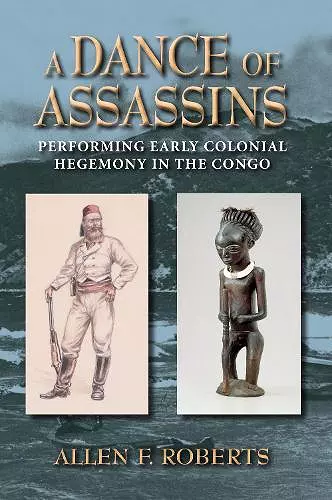A Dance of Assassins
Performing Early Colonial Hegemony in the Congo
Format:Paperback
Publisher:Indiana University Press
Published:20th Dec '12
Currently unavailable, and unfortunately no date known when it will be back

The legacy of a fatal clash between two ambitious men
Reveals the theatricality of early colonial encounter and how it continues to influence Congolese and Belgian understandings of history today
A Dance of Assassins presents the competing histories of how Congolese Chief Lusinga and Belgian Lieutenant Storms engaged in a deadly clash while striving to establish hegemony along the southwestern shores of Lake Tanganyika in the 1880s. While Lusinga participated in the east African slave trade, Storms' secret mandate was to meet Henry Stanley's eastward march and trace "a white line across the Dark Continent" to legitimize King Leopold's audacious claim to the Congo. Confrontation was inevitable, and Lusinga lost his head. His skull became the subject of a sinister evolutionary treatise, while his ancestral figure is now considered a treasure of the Royal Museum for Central Africa. Allen F. Roberts reveals the theatricality of early colonial encounter and how it continues to influence Congolese and Belgian understandings of history today.
Allen Roberts uses . . . [the] assassination to explore the encounter between late nineteenth-century European and Congolese, specifically Tabwa, cultures. There is no scholar more familiar with Tabwa culture, art, and customs, as revealed in his many writings over the last few decades. But Roberts proves equally adept in describing a European culture steeped in an arrogant worldview that it claimed to be 'scientific' and progressive but was often little more than a justification for European conquest.March 2014
* Jrnl of African History *Ultimately, this is an excellent, well-crafted meditation on the collision of colonial and indigenous worlds, and how the indigenous world has enfolded and come to its own terms with an irruption that invading world has largely never understood. . . . Highly recommended.
* Choice *At the end of the day, A Dance of Assassins makes a compelling case for the necessity of ethnography—quality ethnography—in the interpretation of history as a means of opening the past to a more equitable exchange of voices and the 'what-might-have-beens.' It is also, as John Mack notes in his endorsement, a 'veritable page-turner.'
* African Arts *[The]broader themes [of this book] conjure up a bitter and dramatic sense of the colonial past, still contested and poorly understood by both Belgians and Congolese. It imaginatively shows how much may be learned by examining the colonial record from a combination of African and European (and other) points of view. It also suggests how material culture may teach us to fashion new analyses.
* Journal of the Royal Anthropological Institute *A Dance of Assassins . . . is a deeply engaging account of the complex struggles that connected the lives of Europeans and Africans in the earliest days of the colonial encounter in what is now the Democratic Republic of the Congo (DRC). Elegantly written, this book challenges prevailing thinking about colonization and its effects on Africans and Europeans.
* H-Net Reviews H-AfrArts *"A Dance of Assassins" is an engaging, vigorously researched historical ethnography that uses a set of micro-level events and interactions to reveal the complexity and nuances of the early colonial encounter in what would become the Belgian Congo. This book would be of interest to upper-level undergraduates, graduate students, and scholars in African Area Studies, Anthropology, History, Museum Studies, and even Performance Studies.
* AnthropISBN: 9780253007506
Dimensions: unknown
Weight: 454g
328 pages